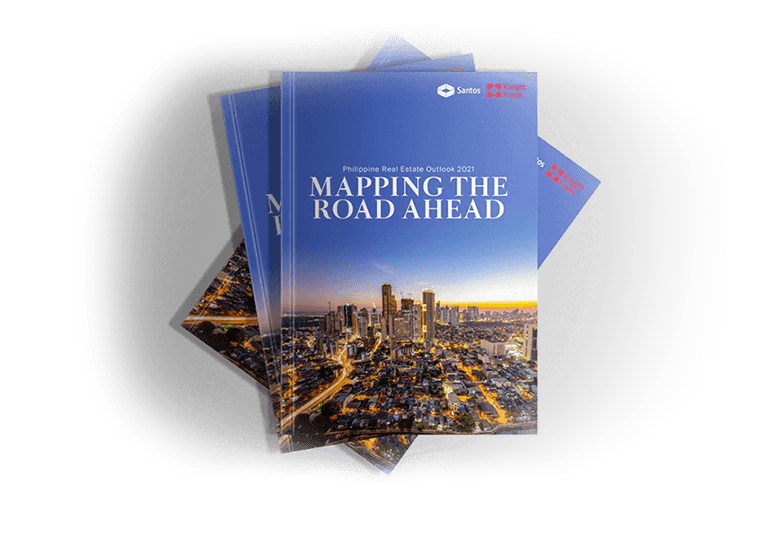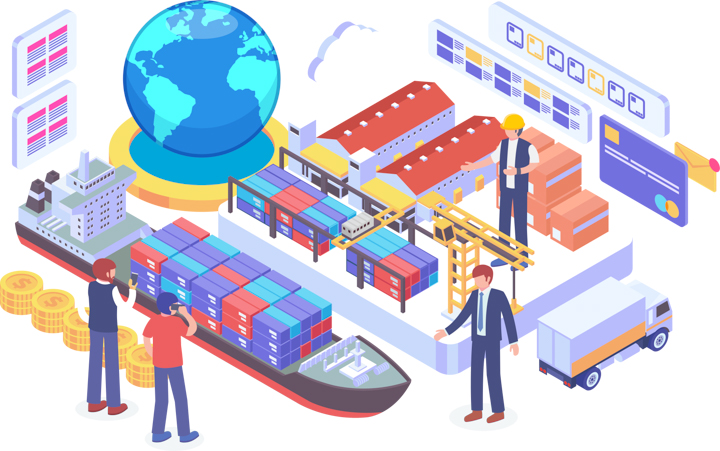Q&A: Doing Business In Cebu
Charles Kenneth Co
President
Cebu Chamber of Commerce & Industry
Santos Knight Frank: What are the opportunities you see for Cebu and the Visayas region in the next 3 years? And which industries do you see will thrive?
Charles Kenneth Co: Nestled at the heart of the Philippine Archipelago, Cebu and the Visayas Region is a strategic hub that is home to many natural wonders, colorful cultural traditions, and a mix of the old heritage districts and the new metropolis. These assets are natural magnets for business enterprises, investment opportunities mixed with easy lifestyle. In the next three years, Cebu's urban landscape will see a transformation in public infrastructure and real estate development spurred by the development plans and programs which auger well for the emergence of the heritage district, innovation and creative hub as well as reinvigorated ventures in trade and commerce, ICT-BPM and creative entertainment, and construction. The Visayas Region will see increased infrastructure outlays for tourism and its complementary sectors in the circular economy i.e., hospitality, services and logistics, the food industry and value-adding in the basic sectors of agriculture and fisheries. Shipbuilding and education will continue to see investments in the Region.
With over 3Million resident and transient populace, the Visayas Region offers a vast opportunity for the retail industry and service sector covering basic food and essential items, home products and housing materials and, sports and physical fitness and hobby-related products and IT products.
SKF: What are the challenges for growth, and what policies are needed to address these?
CKC: The IT-BPM Sector faces challenges in talent acquisition and retention due to the need for a highly skilled workforce. The same challenge is faced by the manufacturing and construction sectors. Rapid technological advancements require continuous upskilling and adaptation. To address these challenges, skill development programs should be pursued with more vigor through government-industry collaboration, promoting research and development with funding and incentives/. . Infrastructure development and investing in digital infrastructure, including reliable high-speed internet, is crucial for a globally competitive region
Globally competitive tourism attractions and services are the ultimate challenge for the Tourism and Hospitality Sector aside from seasonality and predictability. Cebu and Bohol, as the top 2 tourist destinations in Central Visayas and Iloilo and Boracay in Western Visayas are popular for world-class hotels, beaches, and resorts; meetings, incentives, conventions, and exhibitions (MICE) tourism; ecotourism; cultural tourism; and farm-tourism.
Because of its island configuration, the Visayas Region is vulnerable to challenges brought about by global climate changes. This necessitates ample disaster risk management and infrastructure, water sustainability and flood/tidal surge control management and infrastructure, solid waste and wastewater management and infrastructure to complement good environmental and ecosystem management in the terrestrial, coastal and marine resources. The urban and metropolitan area development necessitates good planning and implementation of an efficient intermodal transportation system, traffic management and pollution control measures. While the countryside development especially for its domestic and tourist users necessitate well maintained and sufficient roads and bridges, internet and banking facilities and effective/efficient access to medical services. Private sector participation and engagement in the planning, implementation and maintenance of these public investments can be deepened for more strategic, purposive and timely interventions.
The Agriculture, Fisheries and Agribusiness Sector in the Visayas need a two-pronged approach to overcome e never-ending challenges. The goal of poverty-reduction among the basic sector in agriculture and fisheries requires a separate and comprehensive program that is location-specific and community-based and enables these communities to achieve higher income levels, humane living conditions and be more resilient to disasters. Hence the need to maintain municipal waters from commercial fishers. The other equally important and distinctly different goal is the need to transform the agriculture and fisheries sector to a more competitive, sustainable and profitable level. This recognizes that economies of scale, digitalization and technology infusion with innovative entrepreneurship are minimum elements to achieve a productive sector. Painful truths about the ill-effects of many state policies and programs such as agrarian reform, rice investments even in corn-based societies, among others will need amendments by the public institutions. Only by stopping these policies will micro-efforts of the private sector into sustainable agricultural practices, state-of-the-art technologies of farming, mariculture and fishing reach significant levels of achievement.
SKF: What competitive advantage/s and strengths must Cebu capitalize on as an investment destination?
CKC: The Cebu Chamber of Commerce and Industry through the Cebu Investments Development Concierge Center (CIDCC) envisions Cebu as the "premier investment gateway in the Asia Pacific Region". Whether in tourism, infrastructure, agriculture and fisheries, transportation, creative entertainment, real estate and other investments, Cebu will stand out.
In the context of the Metropolitan Cebu, Cebu City's popularity embraces being as a tourist destination where business is mixed with leisure, an educational hub and home to over 20 colleges and universities, with vibrant urban life. This extends to the tri-cities and the island Province’s countryside which offer enticing investment opportunities in various industries. Cebu has strategically located industrial parks and economic zones such as the Mactan Export Processing Zone and Cebu Light Industrial Park, Western Cebu Industrial Zone which houses the shipbuilding industry. Cebu is the fulcrum and home base of various economic drivers which offers economic stability, Its public sector is easy to approach and engage with for infrastructure, tax incentives and other policy and program support to attract and maintain local and foreign investors. Furthermore, Cebu attracts talent and highly skilled workforce to meet the needs of various industries and continues to create more industry-based job profiles and competencies. Additionally, Cebu benefits from a strong and dynamic network of business organizations, chambers of commerce and industry associations, fostering collaboration and promoting overall growth through support, networking, and knowledge-sharing platform.
Because Cebu beats the tune of progress resonating a vibrancy that reaches out to the rest of the nation while spreading forward aspirations of prosperity - is itself a natural advantage to capitalize on.
About Charles Kenneth Co
Charles Kenneth Co is the 50th President of the Cebu Chamber of Commerce & Industry. Before he was elected as president, Co served as vice president for membership development / chamber growth in 2020, vice president for the external affairs and relations division in 2018, and overall chairman of the Cebu Business Month in 2017. He also served the chamber as a trustee in 2016. A graduate of Bachelor of Science in Management at Ateneo de Manila University, Co is currently the assistant to the president of Cebu Steel Corporation. He also served as the assistant to the president of the Cebu Oversea Hardware, and treasurer of the Cebu Contractors Association.
Q&A: Travel & Hospitality
Alfred Reyes
President
Hotel, Resort and Restaurant Association of Cebu, Inc.
Santos Knight Frank: What is the No. 1 challenge that your industry faces in Cebu?
Alfred Reyes: Firstly, Cebu needs a major convention center to become a MICE destination. Second, there are currently limited flights to and from Cebu. Lastly, there are no proper port terminals in Cebu that can compete with the likes of Macau, Singapore, and Batam (Indonesia).
SKF: How can Cebu become more appealing to key travel markets - especially MICE?
AF: Cebu needs a MICE organization or a convention bureau to further appeal to the MICE market. The said organization would incorporate all properties that comprise the four main LGUs in Cebu. This would help further push Cebu in becoming a MICE destination.
SKF: Where do you see Cebu's travel, hotel and hospitality sector in 3- 5 years?
AF: The upcoming developments of SMX, along with smaller convention centers by Megaworld and at Nustar are a good start for Cebu to bid for MICE. I believe Cebu can become a promising MICE destination, especially since Cebu offers several attractions — from sea to land and even cultural heritage. These developments would allow Cebu to bid for bigger MICE markets and stand and win in future international exhibitions and conventions.




